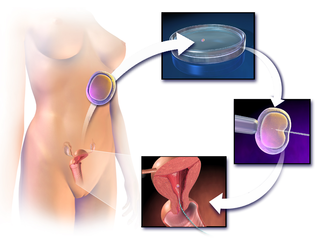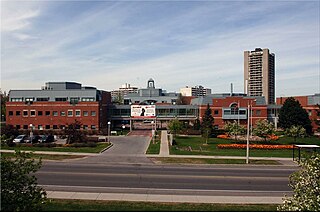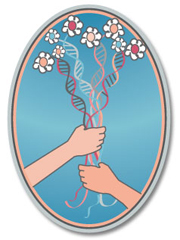Related Research Articles

Organ donation is the process when a person authorizes an organ of their own to be removed and transplanted to another person, legally, either by consent while the donor is alive, through a legal authorization for deceased donation made prior to death, or for deceased donations through the authorization by the legal next of kin.

Artificial insemination is the deliberate introduction of sperm into a female's cervix or uterine cavity for the purpose of achieving a pregnancy through in vivo fertilization by means other than sexual intercourse. It is a fertility treatment for humans, and is a common practice in animal breeding, including dairy cattle and pigs.

Assisted reproductive technology (ART) includes medical procedures used primarily to address infertility. This subject involves procedures such as in vitro fertilization (IVF), intracytoplasmic sperm injection (ICSI), cryopreservation of gametes or embryos, and/or the use of fertility medication. When used to address infertility, ART may also be referred to as fertility treatment. ART mainly belongs to the field of reproductive endocrinology and infertility. Some forms of ART may be used with regard to fertile couples for genetic purpose. ART may also be used in surrogacy arrangements, although not all surrogacy arrangements involve ART. The existence of sterility will not always require ART to be the first option to consider, as there are occasions when its cause is a mild disorder that can be solved with more conventional treatments or with behaviors based on promoting health and reproductive habits.

A sperm bank, semen bank, or cryobank is a facility or enterprise which purchases, stores and sells human semen. The semen is produced and sold by men who are known as sperm donors. The sperm is purchased by or for other persons for the purpose of achieving a pregnancy or pregnancies other than by a sexual partner. Sperm sold by a sperm donor is known as donor sperm.
Egg donation is the process by which a woman donates eggs to enable another woman to conceive as part of an assisted reproduction treatment or for biomedical research. For assisted reproduction purposes, egg donation typically involves in vitro fertilization technology, with the eggs being fertilized in the laboratory; more rarely, unfertilized eggs may be frozen and stored for later use. Egg donation is a third-party reproduction as part of assisted reproductive technology.

Canadian Blood Services is a non-profit charitable organization that is independent from the Canadian government. The Canadian Blood Services was established as Canada's blood authority in all provinces and territories except for Quebec in 1998. The federal, provincial and territorial governments created the Canadian Blood Services through a memorandum of understanding. Canadian Blood Services is funded mainly through the provincial and territorial governments.
The Repository for Germinal Choice was a sperm bank that operated in Escondido, California from 1980 to 1999. The repository is commonly believed to have accepted only donations from recipients of the Nobel Prize, although in fact it accepted donations from non-Nobelists, also. The first baby conceived from the project was a girl born on April 19, 1982. Founded by Robert Klark Graham, the repository was dubbed the "Nobel prize sperm bank" by media reports at the time. The only contributor who became known publicly was William Shockley, Nobel laureate in physics.
A donor offspring, or donor conceived person, is conceived via the donation of sperm or ova, or both.

The Donor Sibling Registry is a website and non-profit US organization serving donor offspring, sperm donors, egg donors and other donor conceived people. It was founded in September 2000 by a mother-and-son team, Wendy Kramer and Ryan Kramer of Nederland, Colorado.
Sperm donation laws vary by country. Most countries have laws to cover sperm donations which, for example, place limits on how many children a sperm donor may give rise to, or which limit or prohibit the use of donor semen after the donor has died, or payment to sperm donors. Other laws may restrict use of donor sperm for in vitro fertilisation (IVF) treatment, which may itself be banned or restricted in some way, such as to married heterosexual couples, banning such treatment to single women or lesbian couples. Donated sperm may be used for insemination or as part of IVF treatment. Notwithstanding such laws, informal and private sperm donations take place, which are largely unregulated.
Many countries have laws, regulations, or recommendations that effectively prohibit donations of blood or tissue for organ and corneal transplants from men who have sex with men (MSM), a classification irrespective of their sexual activities with same-sex partners and of whether they identify themselves as bisexual or gay. Temporary restrictions are sometimes called "deferrals", since blood donors who are found ineligible may be found eligible at a later date. However, many deferrals are indefinite meaning that donations are not accepted at any point in the future, constituting a de facto ban. Even men who have monogamous relations with their same-sex partners are found ineligible.
Fertility tourism is the practice of traveling to another country or jurisdiction for fertility treatment, and may be regarded as a form of medical tourism. A person who can become pregnant is considered to have fertility issues if they are unable to have a clinical pregnancy after 12 months of unprotected intercourse. Infertility, or the inability to get pregnant, affects about 8-12% of couples looking to conceive or 186 million people globally. In some places, rates of infertility surpass the global average and can go up to 30% depending on the country. Areas with lack of resources, such as assisted reproductive technologies (ARTs), tend to correlate with the highest rates of infertility.
Sperm donation is the provision by a man of his sperm with the intention that it be used in the artificial insemination or other "fertility treatment" of one or more women who are not his sexual partners in order that they may become pregnant by him. Where pregnancies go to full term, the sperm donor will be the biological father of every baby born from his donations. The man is known as a sperm donor and the sperm he provides is known as "donor sperm" because the intention is that the man will give up all legal rights to any child produced from his sperm, and will not be the legal father. Sperm donation may also be known as "semen donation".

Donor Unknown is a 2010 documentary film directed by Jerry Rothwell and produced by Al Morrow and Hilary Durman. A 21st-century tale of identity and genetic inheritance, this film tells the story of a sperm donor and the children who want to meet him. It follows JoEllen Marsh as she goes in search of the sperm donor father she only knows as Donor 150.
In sperm banks, screening of potential sperm donors typically includes screening for genetic diseases, chromosomal abnormalities and sexually transmitted infections (STDs) that may be transmitted through the donor's sperm. The screening process generally also includes a quarantine period, during which samples are frozen and stored for at least six months after which the donor will be re-tested for STIs. This is to ensure no new infections have been acquired or have developed during since the donation. If the result is negative, the sperm samples can be released from quarantine and used in treatments.
GenePeeks is a genetic research company that owns and runs Matchright, a simulation that determines the probability of genetic disorders being present in a child given two people's DNA.
Jordan Sebastian Waller is a British actor and writer, known for playing Lord Alfred Paget in the television series Victoria.
The Sperm Bank of California (TSBC) is a nonprofit sperm bank in Berkeley, California. It was founded by Barbara Raboy in 1982.

Lesbian, gay, bisexual, and transgender people people wishing to have children may use assisted reproductive technology. In recent decades, developmental biologists have been researching and developing techniques to facilitate same-sex reproduction.

Fertility fraud is the failure on the part of a fertility doctor to obtain consent from a patient before inseminating her with his own sperm. This normally occurs in the context of people using assisted reproductive technology (ART) to address fertility issues.
References
- ↑ Research Involving Human Biological Materials: Ethical Issues and Policy Guidance. National Bioethics Advisory Commission. 1999. p. D-31. Retrieved 6 October 2018.
The California Cryobank, founded in 1977, is one of the largest full—service sperm banks.
- ↑ Seed capital – The business of sperm banks, The Economist, Sep 14th 2017
- ↑ Casais importam sêmen dos EUA com busca que inclui semelhança com famosos, Estelita Hass Carazzai, Phillippe Watanabe, Folha de S. Paulo, May 28, 2018 (in Portuguese)
- ↑ "Soy hija única pero tengo 5 hermanos": los hijos de donantes de esperma que buscan sus raíces en internet, Beatriz Díez, BBC Mundo, August 2, 2016 (in Spanish)
- ↑ El controvertido uso de esperma de hombres muertos para tener hijos, Jenny Morber, BBC, May 24, 2016 (in Spanish)
- ↑ Widows and parents want to preserve dead men’s sperm–but what are the rights of the deceased?, Jenny Morber, Quartz, May 8, 2016